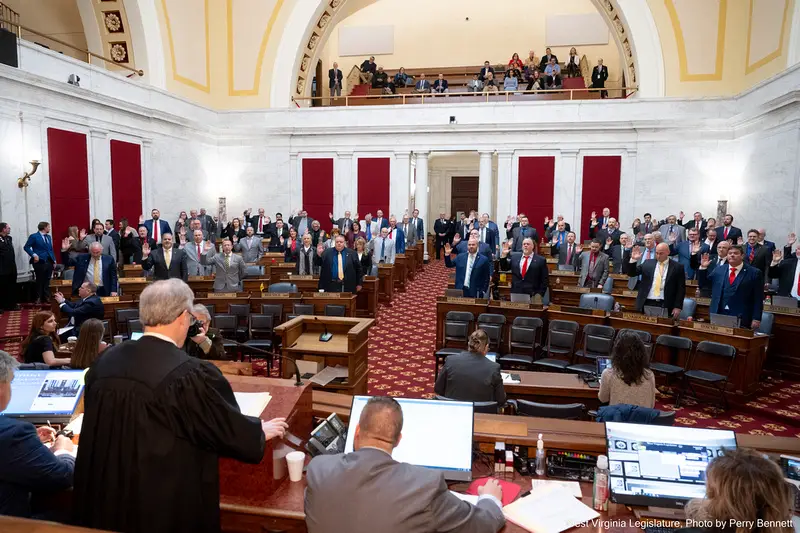WASHINGTON, D.C. (WVDN) – On March 18th, two proud West Virginia natives and West Virginia University alumni — Brandi Underwood and Mike Fulton — joined more than 250 advocates from 45 states and the District of Columbia for the Alliance for Headache Disorders Advocacy’s (AHDA) annual Headache on the Hill (HOH). Their goal is policy changes and funding increases that will improve care, increase research funding, and address the stigma surrounding headache disorders, which affect more than 40 million Americans, including thousands of West Virginians who often face barriers to diagnosis and treatment.
“Headache disorders, including migraine and facial pain conditions disproportionately impact rural communities, yet too many go undiagnosed or struggle to access care,” said Brandi Underwood, AHDA Board Secretary and Development, Research, and Advocacy Manager at the Facial Pain Association. Underwood, a native of Twilight, W.Va., added, “As someone who grew up in West Virginia and lives with these conditions, I understand the barriers people face. It is important for lawmakers to understand that headache disorders can be life-altering and demand real action, and we need policies that ensure no one is left behind.”
Fulton, a native of Parkersburg, W.Va., is Director of Public Affairs and Advocacy at Asher Agency in Washington, D.C. The two Mountaineers met with 10 Congressional staffers yesterday to make their case.
Headache disorders encompass a range of disabling neurological conditions, including migraine, cluster headache, trigeminal neuralgia, and post-traumatic headache. These disorders can cause severe pain, sensory disturbances, and significant disability. Migraine alone is the second leading cause of disability worldwide and disproportionately affects women. Despite their prevalence and impact, headache disorders remain underdiagnosed, undertreated, and significantly underfunded in research. Individuals living with headache disorders often struggle with stigma, barriers to care, and a lack of effective treatments, making advocacy efforts like Headache on the Hill critical to changing the landscape of care and research.
During meetings with Members of Congress and their staff, AHDA advocates will urge lawmakers to take action on key legislative priorities, including:
- The Safe Step Act: This bipartisan bill would establish patient protections against step therapy, an insurance practice that forces patients to try and fail on insurer-preferred treatments before accessing doctor-recommended care. Headache disorder patients are among those most impacted by these restrictive protocols, often leading to unnecessary pain, disability, and worsening symptoms.
- Protecting NIH Research Funding: Despite migraine being the second leading cause of disability worldwide and the leading cause for young women in the U.S., headache disorders remain among the most underfunded neurological diseases. Increased investment in the National Institutes of Health (NIH) is essential for developing better treatments, improving diagnosis, and advancing research into the biological mechanisms behind these conditions.
- Supporting the VA Headache Centers of Excellence: Veterans experience headache disorders at higher rates than the general population, often as a result of traumatic brain injury (TBI) and other service-related exposures. Advocates called for robust funding to support the expansion and operation of these specialized centers within the Veterans Health Administration.
Headache on the Hill provides an opportunity for those impacted by headache disorders to share their stories directly with lawmakers and make their voices heard.















